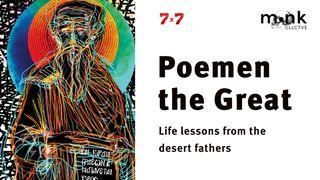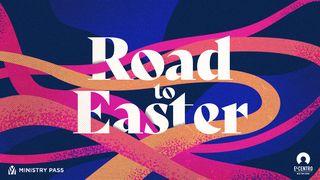The Divine DanceSample

(Unless otherwise indicated, all Scripture verses are taken from the New Jerusalem Bible.)
A Mirrored Universe
Like probably nothing else, all authentic knowledge of God is participatory knowledge. I must say this directly and clearly because it is a very different way of knowing reality—and it should be the unique, open-horizoned gift of people of faith. But we ourselves have almost entirely lost this way of knowing.
God (and uniquely the Trinity) cannot be known as we know any other object—such as a machine, an objective idea, or a tree—which we are able to “objectify.” We look at objects, and we judge them from a distance through our normal intelligence, parsing out their varying parts, separating this from that, presuming that to understand the parts is always to be able to understand the whole. But divine things can never be objectified in this way; they can only be “subjectified” by becoming one with them! When neither yourself nor the other is treated as a mere object, but both rest in an I-Thou of mutual admiration, you have spiritual knowing. Some of us call this contemplative knowing.
Such knowing intuits things in their wholeness, with all levels of connection and meaning, and perhaps how they fit in the full scheme of things. Thus, the contemplative response to the moment is always appreciation and inherent respect (“to look at a second time”) because I am now a part of what I am trying to see. Our first practical and partial observation of most things lacks this respect. It is not yet contemplative knowing. Frankly, when you see things contemplatively, everything in the universe is a mirror! How seriously I mean this will become clear as we proceed.
Now just hold on to this, dear readers, because the originating mystery of Trinity both names and begins the mirroring process, allowing us to know all that we need to know by the same endless process of mirroring and reflecting. (See 2 Corinthians 3:18; Romans 1:20.) We know things in their depth and beauty only by this second gaze of love.
A true mirror first receives an image and then reflects it back truthfully—but now so that I can see myself, too. The all-important thing is that you find the right mirror that mirrors you honestly and at depth. All personhood is created in this process, and our job is always to stay inside this mirroring. Our task is to trustfully receive and then reflect back the inner image transmitted to us until, as the apostle Paul expressed, “we are gradually turned into the image that we reflect.” (See 2 Corinthians 3:18.)
This is the whole spiritual journey in one sentence! All love, goodness, and holiness is a reflected gift. You take all things into yourself by gazing at them with reverence, and this completes the circuit of love—because this is how creation is looking out at you. The inner life of the Trinity has become the outer life of all creation. This is good!
This is all about expanding our recognition and reverence for the universal mystery of Incarnation (the enfleshment of the Divine) until, in the end, as Augustine shockingly puts it, “there shall be one Christ, loving Himself.” And of course, he is only building on Paul: “There is only Christ: he is everything and he is in everything” (Colossians 3:11). The divine mirroring will never stop; mirroring is how the whole transformation process is personally initiated and finally achieved.
But we have to be taught how to “gaze steadily into this law of perfect freedom, and make this our habit,” as James so brilliantly intuits it. (See James 1:25.)
Jesus comes forth from the infinite life of the Trinity and invites us and includes us back in the Infinitely Receiving Gaze so that now we can have participatory knowledge of the same (see John 14:3, 18–20) because no objectification of God is ever possible. We can only be mirrored, and we can only know and see ourselves fully both in a mirror and through a mirror. It is thus crucial and central to have a well-polished mirror that can see and reflect God in you. Yes, good theology and God-image are important!
And dare we believe that God sees a bit of Godself mirrored in new form as God gazes at us? This is a very fair conclusion.
Mirrored knowledge is not “logical” knowledge—it’s reflected and received knowledge. That’s why it’s difficult to prove God or to prove love to anybody who hasn’t been in the receiving line itself. In fact, it’s largely impossible. Note how Moses’ face shines after he’s received the divine gaze and been seen truthfully and lovingly (see Exodus 34:29–35), and yet he always covers it with a veil when he goes among the people. This is no small symbol. All people need to be seen for themselves and as themselves, and receive the divine gaze intimately—and not just rely on someone else’s seeing.
Three times, Scripture mentions that Moses was the only one who knew YHWH “face to face” (Exodus 33:11; Numbers 12:8; Deuteronomy 34:10). This is the first account of the divine unveiling in the biblical tradition, and it is done precisely through a process of personal interface or mirroring. The image is effectively transferred to Moses, and then he spends the rest of his life trying to pass on the mirroring to the wandering Israelites—with scant success. People prefer laws and reassuring repetitive rituals to intimate mirroring. True mirroring only needs to be received and recognized once—and once is enough to change you forever. But it deepens if we “gaze steadily and make it a habit,” as James says. This is the heart of all prayer.
About this Plan

God cannot be known as we know a machine, an idea, or a tree, which we are able to “objectify.” He is truly known only in relationship. In the contemplative tradition, Richard Rohr describes how we can come to know God through relationship—by joining in a “dance” of holiness and love with the Father, Son, and Spirit—through which we are transformed, pray meaningfully, and serve others in love.
More
We would like to thank Whitaker House for providing this plan. For more information, please visit: https://www.whitakerhouse.com/book-authors/richard-rohr/









